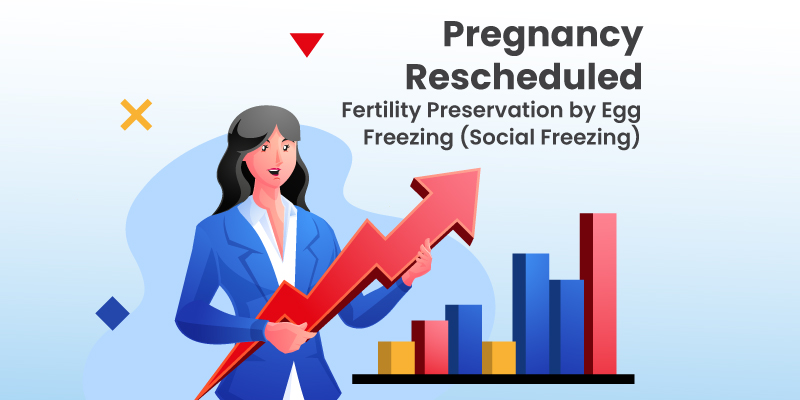Author: Dr. V Ramya, Consultant & Fertility Specialist
Planning a pregnancy has taken a back seat with the help of fertility preservation as a lot of couples are aiming for career and personal growth. For women, especially among career-driven women, egg preservation has gained popularity. However due to the myths and doubts regarding egg preservation, many end up not pursuing the idea of it. Don’t worry we are here to help you with the details.
Firstly, what is egg freezing?
In medical terms, it is technically called oocyte cryopreservation. It is a procedure that is used to conserve the reproductive potential of a woman. The ovaries are stimulated with hormonal injections to extract multiple mature eggs. These mature eggs are frozen at low temperatures for later usage.
Reasons to consider egg freezing:
A range of factors play a role when one considers egg freezing. A few of them include:
- Career and educational plans · Cancer treatment for lymphoma, breast, and other cancers
- Personal circumstances such as lack of partner or partner’s fertility issues
- Family history of genetic conditions that might affect fertility
- Infections, organ failure, and other health conditions
The best age to freeze eggs
It is a well-known fact that a woman’s fertility decreases with age as the quality and number of eggs decline with increasing age. Also, a woman’s fertility is at its peak from age 25-30.
After 35 – 40, it starts to decline rapidly. So for best results, it is suggested to freeze your eggs in your late 20’s or early 30’s.
It is possible to freeze your eggs at 40, but after 35, fertility starts to deteriorate. The number of eggs that can be recovered will be minimal as there will be a decline in the egg reserve.
For women who want to postpone their motherhood plans at 40, it is often advised to consider donor eggs for best results.
The life period of frozen eggs:
The frozen eggs can be stored for a lifetime. However, most people use them within 10 years of freezing. Although there is no evidence, the quality of frozen eggs might deteriorate over a prolonged period of storage of more than 10 years.
The frozen eggs if unused can be discarded or donated.
Bottomline:
Egg Freezing gives hope to women who are planning to postpone their pregnancy plans due to various reasons. Also, it is essential to know that women who wish to freeze their eggs should consider getting it done as early as possible. There is no definite number of eggs to be preserved. It would be ideal to freeze as many eggs as possible to increase the chances of success rate while using. However, the number of eggs retrieved depends on the ovarian reserve, age, and other medical conditions of a woman.

